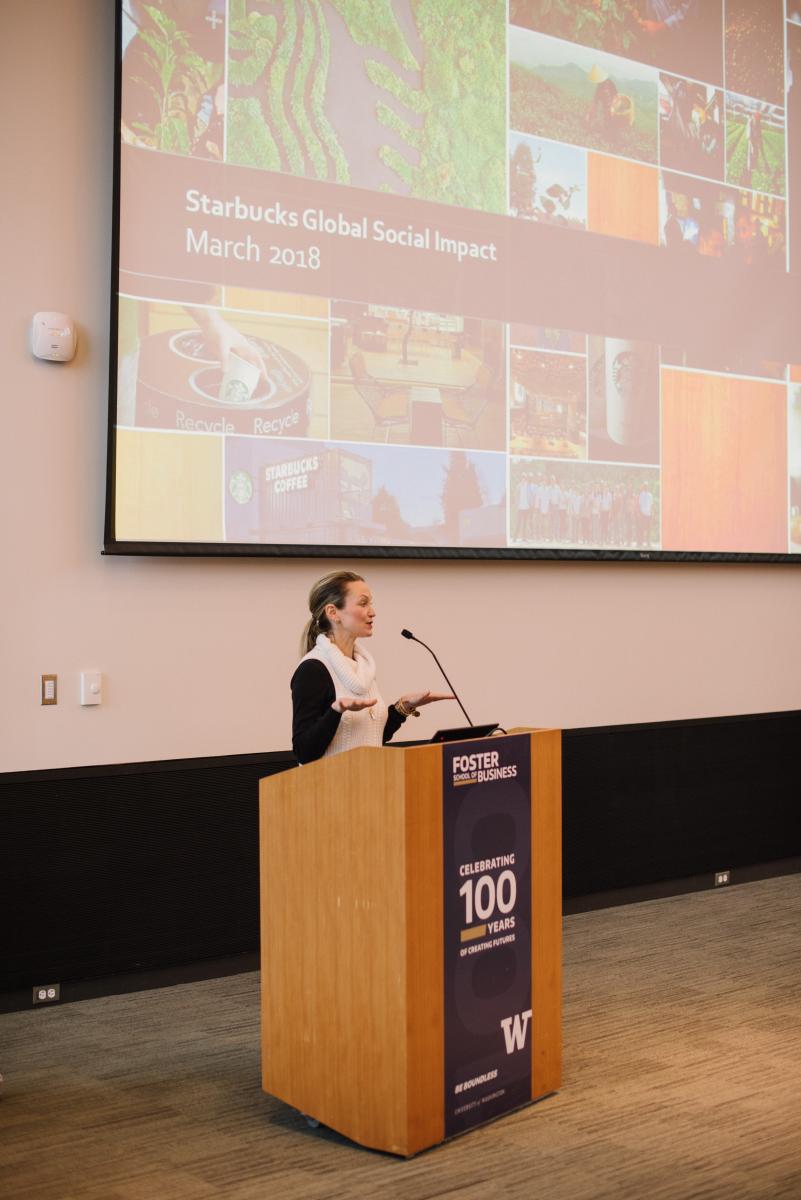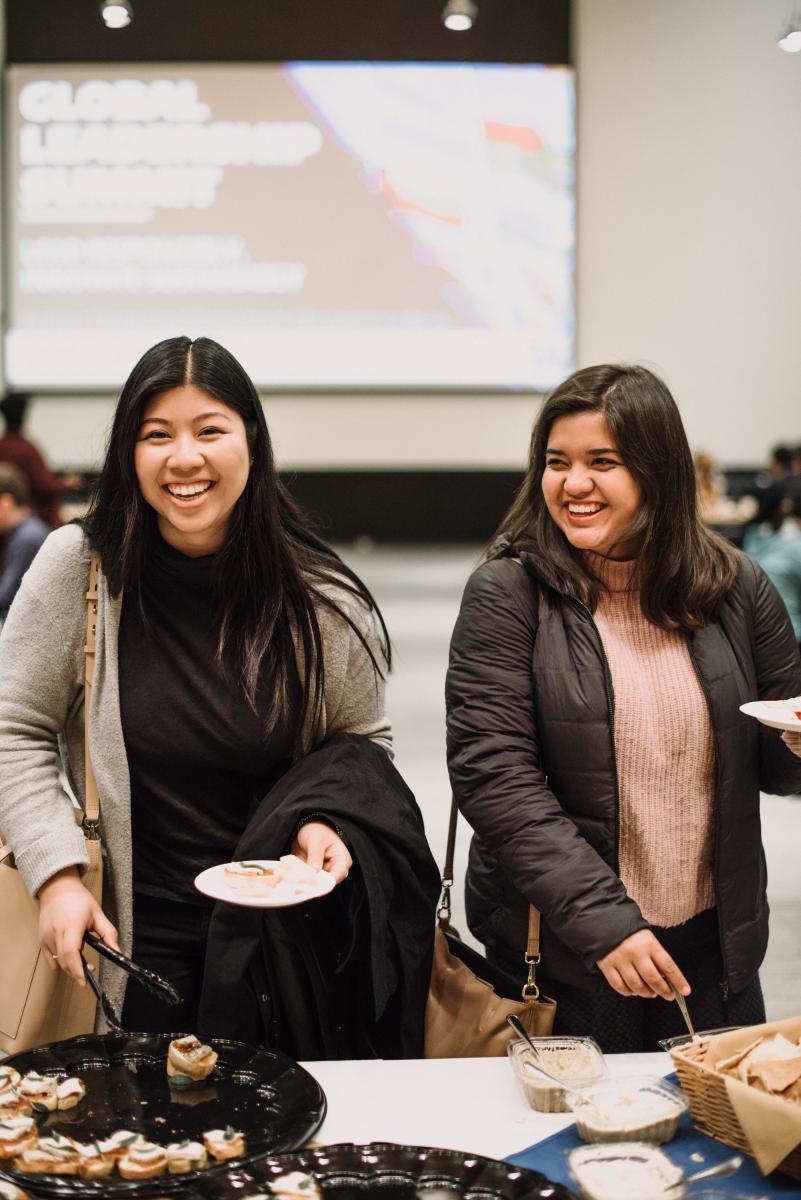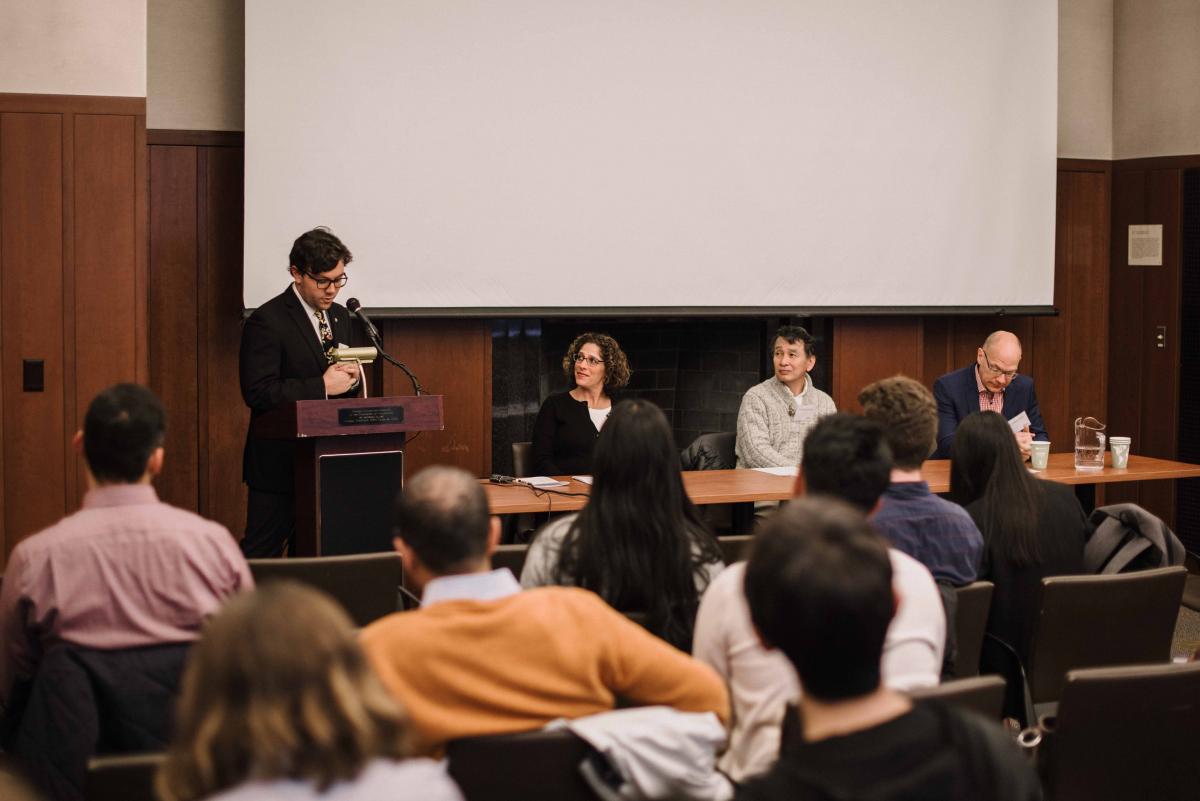
The words sustainability and business are not often heard together in the same sentence within the corporate sector.
As traditional business practices have typically prioritized profits over purpose and people, many people remain critical about a company's true intentions. Thankfully, slow and steady progress over the years have created an undercurrent of individuals, organizations, and business leaders who have repeatedly asked: how can businesses do good in the world?
The inaugural Global Leadership Summit provided a space for business professionals, students, and community members to discuss and delve into this question. Issues around sustainability, social justice, business, and technology are all intersectional in nature. While these issues obviously cannot be solved overnight, this is the first summit of its kind directly hosted by the Foster School of Business.
The night was kicked off by Jennifer Bibby, the Director of Global Social Impact for Starbucks, with a keynote address about Starbucks' various initiatives that aim to support everyone in their supply chain. Everyone then quickly split off to two rounds of workshops led by speakers from the European Commission, Microsoft, Bill & Melinda Gates Foundation, and others.
Thoughts students who attended the event continue below.
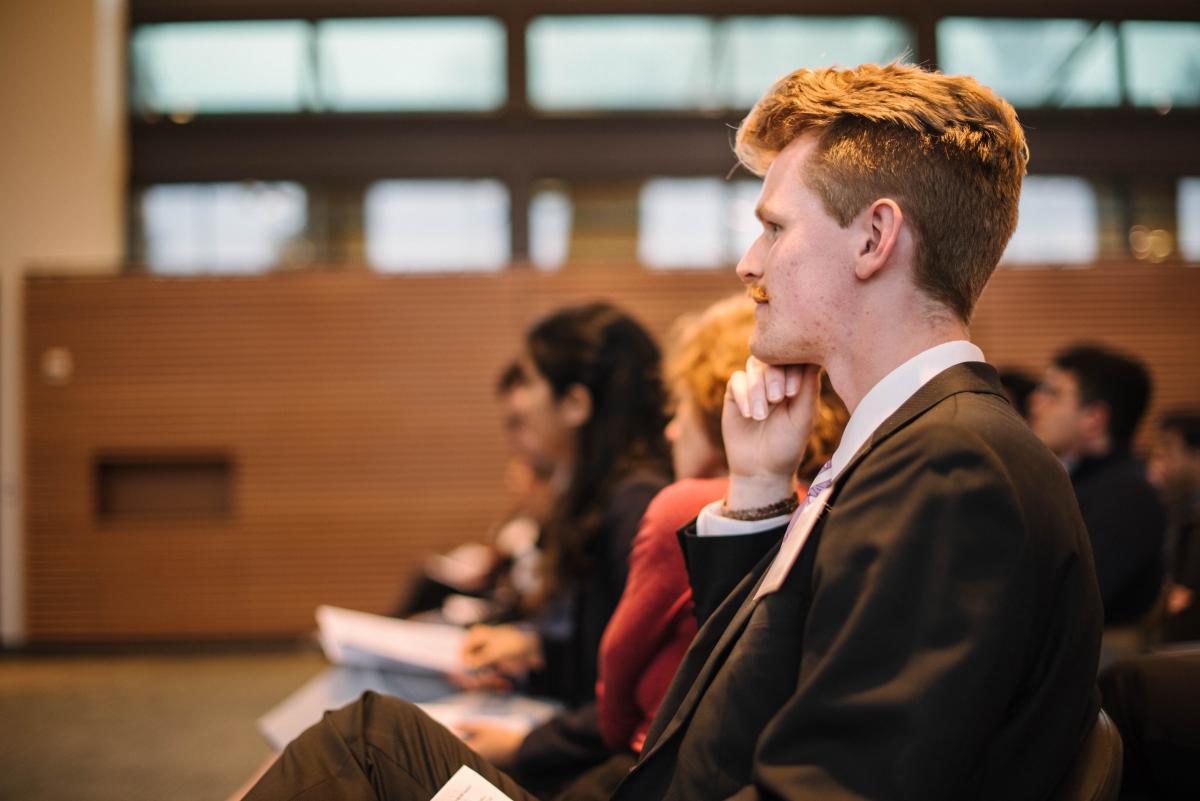
I loved seeing such a wide mix of people— students, business leaders, community members— come together to share knowledge about how to lead the business world in a more sustainable and just direction. The sessions included such interesting topics. From environmental policy, to business ethics, to encouraging and fostering diversity in the workplace, these discussions are so important.
- Sydney Solis
Entrepreneurship & Community Environment Planning, 2020
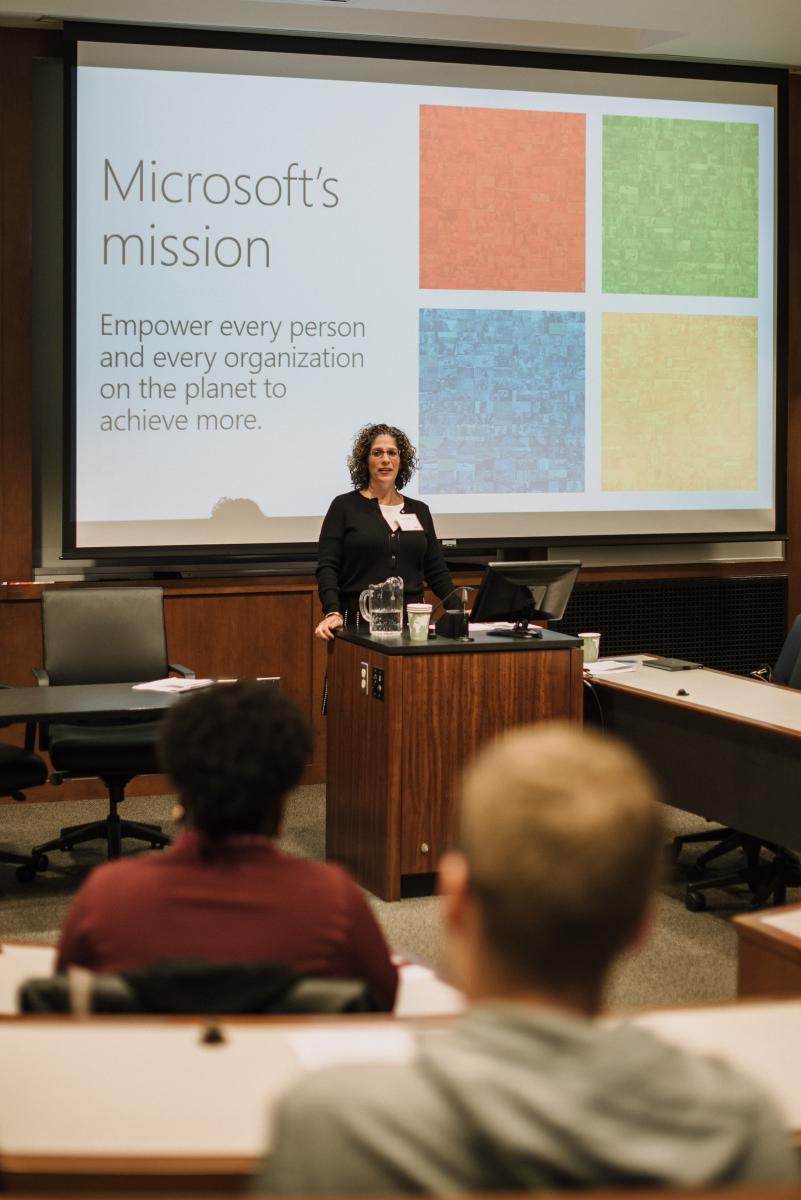
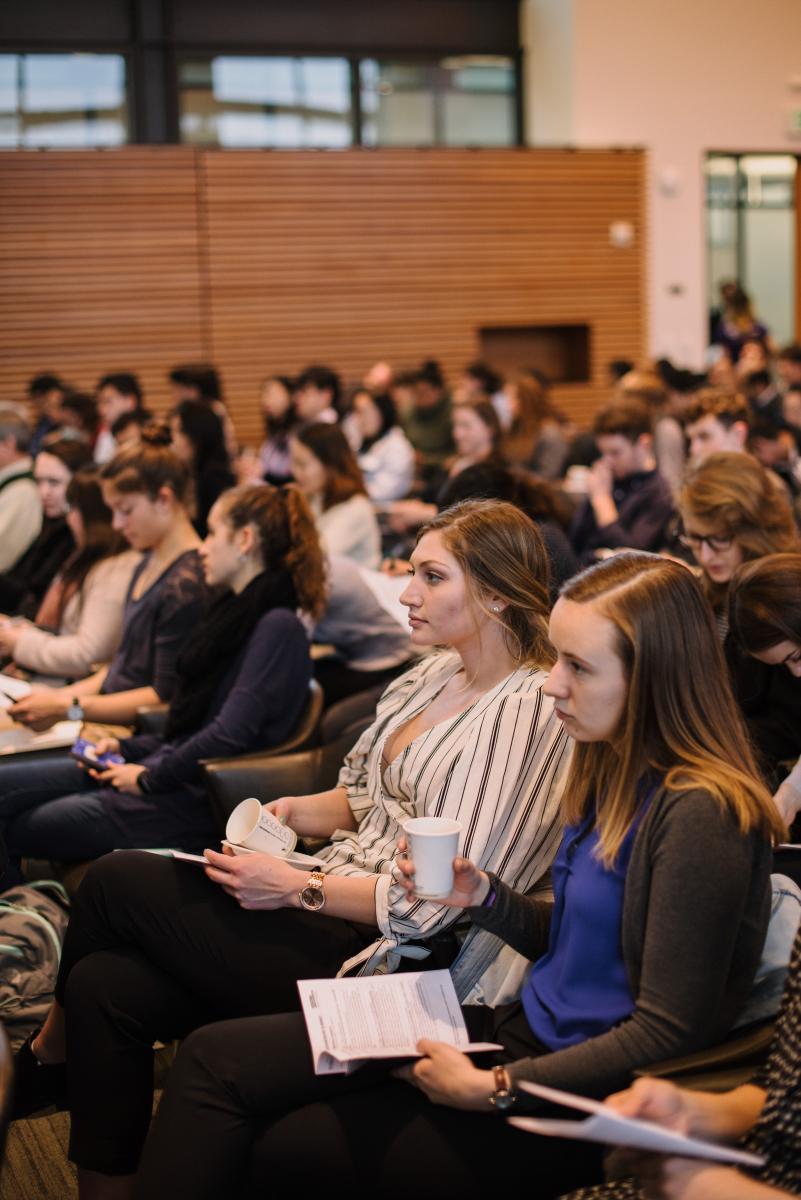
“Artificial intelligence does not have empathy...Jobs will shift, but the empathy element will always be needed” - Julie Zunker
I believe that Julie addressed an interesting thought that many people are talking about lately (people who may or may not be involved in AI-related work). Technology is advancing at such an incredible pace that one might ask “will there be any job left for humans?” or “will robots take over the world?” It feels almost comforting to know that people have the ability to develop empathetic feelings towards others that artificial intelligence probably cannot emulate. Then again, with the technology we have today that is improving ten times as we are speaking, anything is possible!
- Amy Lin
Environmental Studies, 2021
It was inspiring to see so many people from the Seattle community interested in seeing this discussion take place, and coming to contribute to it in no small way. In this regard, I think the Global Leadership Summit did a good job breaking out of the student-bubble at the UW, and continuing in the future to reach more diverse communities in Seattle will be key to adding to the discussion's comprehensiveness and depth.
It's exiting to think that this event was just one part of the growing momentum on campus and in the Seattle community to have this dialogue on important issues and help develop people to lead responsibly in these matters. We're thrilled with the turnout, but we're equally excited to how it evolves in the coming years, with its current leadership considering nothing short of a campus certificate program or minor.
- Henry Milander
Finance & International Studies & Arabic, 2018
President of Certificate of International Studies in Business Executive Board
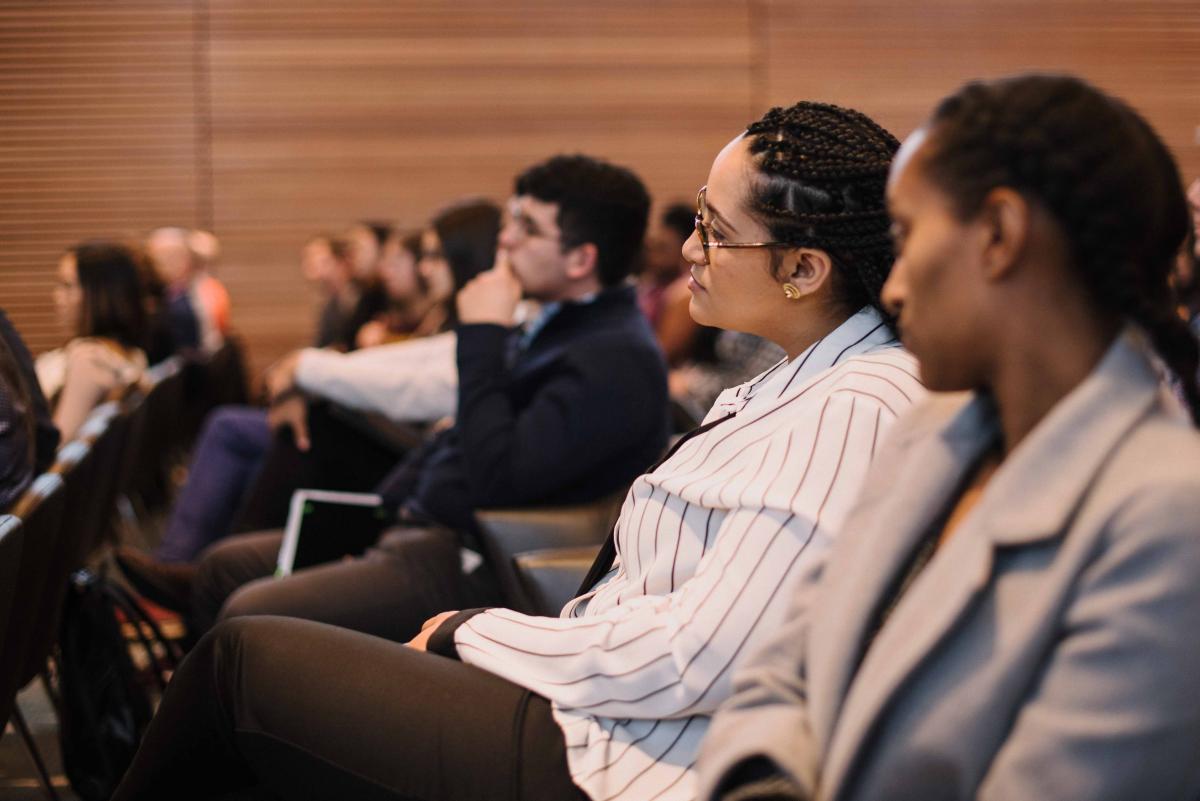
The Global Leadership Summit helped expose me to how some of the largest companies are shifting their businesses towards more sustainable practices, and how they remain profitable while benefiting their employees and the environment. Seeing how for-profit companies like Starbucks and NGO’s like the Gate’s Foundation can share common goals signals how the world is becoming more aware of how we can all benefit from sustainable practices. I can’t wait to have a thriving and mutually beneficial environment to enter after graduating.
- Zander Lyskin
Entrepreneurship, 2019
